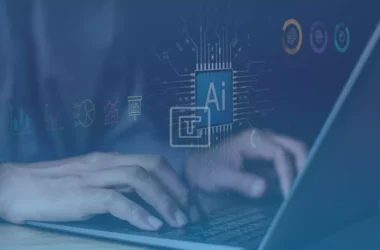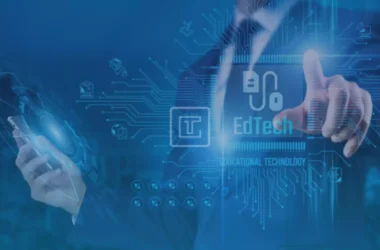In an increasingly digital world, the ability to navigate and utilize technology effectively has become an essential skill, not just for personal use but for career success as well. Digital literacy, which refers to the ability to use digital tools and platforms to access, create, and share information, is now as fundamental as reading and writing. As schools and universities seek to equip students with the skills needed to thrive in the future of work, education consultants are stepping in to bridge the gap between traditional teaching methods and the digital demands of today’s society. These consultants play a pivotal role in helping institutions integrate digital literacy into their curricula, ensuring that students are not only familiar with technology but are empowered to use it in innovative ways.
The Growing Need for Digital Literacy in Education
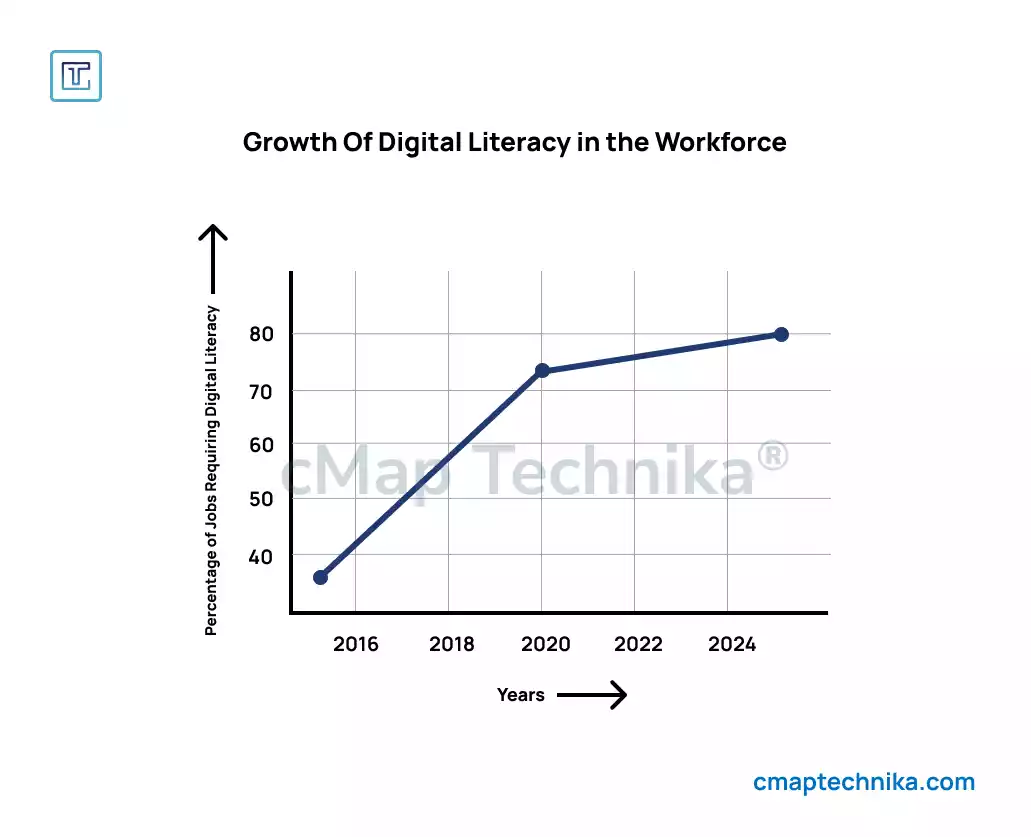
Digital literacy has evolved far beyond basic computer skills. In today’s educational environment, it encompasses a broad range of competencies, from understanding online safety and privacy to developing critical thinking and problem-solving skills using digital tools. With technology rapidly advancing, students need to be equipped with the skills to work with new and emerging tools, whether it’s understanding artificial intelligence, coding, data analysis, or navigating complex digital platforms for research, communication, and collaboration.
For schools and universities, this shift presents a unique challenge. Many educational institutions, especially those that are not equipped with the latest technologies, struggle to keep pace with the changing demands of the workforce. Without the necessary expertise to integrate digital literacy into teaching and learning effectively, these institutions risk falling behind in preparing their students for the realities of a tech-driven world.
The Role of Education Consultants in Enhancing Digital Literacy
Education consultants have become instrumental in helping institutions navigate the complexities of digital literacy integration. These experts bring valuable insight and expertise that help schools and universities develop strategies for incorporating technology into their curricula in a meaningful and impactful way.
1. Assessing Current Digital Literacy Levels
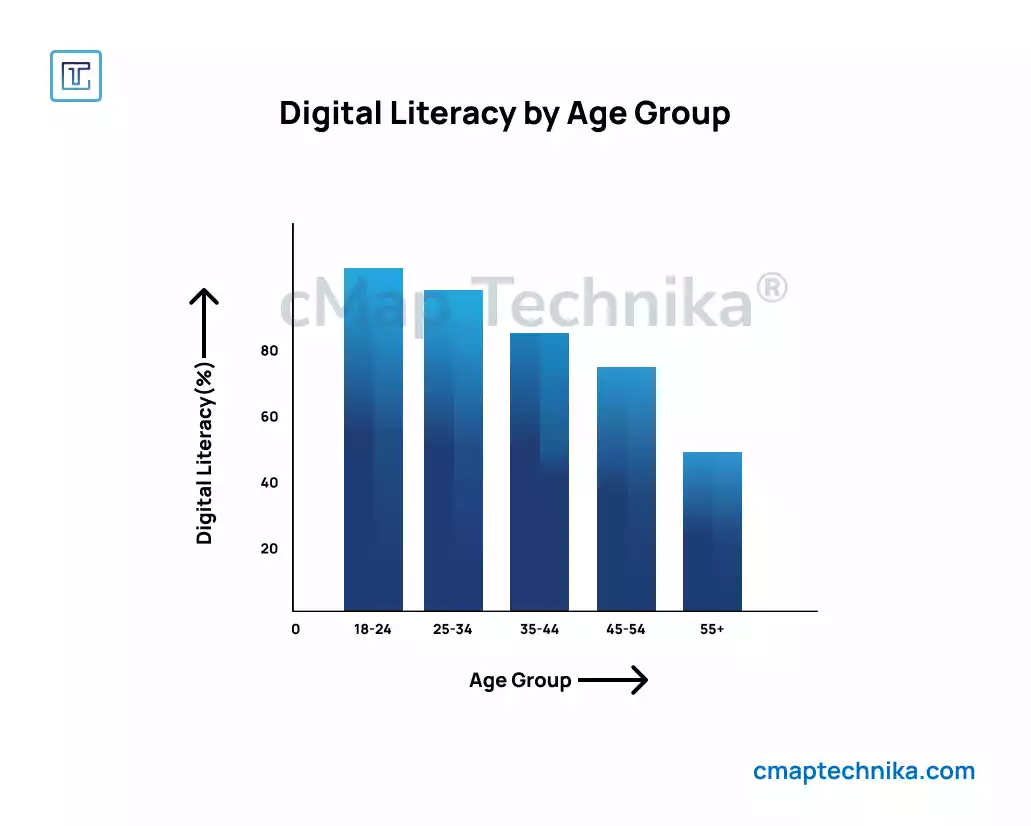
The first step in enhancing digital literacy is understanding where an institution stands. Education consultants begin by assessing the current level of digital literacy among students and staff. This involves evaluating both the technological infrastructure and the proficiency of students in using digital tools. Surveys, focus groups, and skill assessments are common methods consultants use to gauge digital competency.
By identifying gaps in knowledge and skills, consultants can recommend targeted interventions and help institutions prioritize areas for improvement.
2. Designing Customized Digital Literacy Programs
Education consultants work closely with schools and universities to design digital literacy programs that align with their unique needs and objectives. These programs are not one-size-fits-all; instead, consultants customize their recommendations based on the institution’s specific goals, whether it’s enhancing digital literacy for students entering the workforce, fostering digital citizenship, or ensuring faculty members can integrate technology into their teaching.
The consultants may design training modules, workshops, or online courses that address a wide range of skills. For example, a program might cover essential topics like internet research, digital communication tools, or cybersecurity for students, while offering professional development opportunities for educators to become proficient in using digital tools for lesson planning and instruction.
3. Integrating Digital Literacy into Existing Curricula
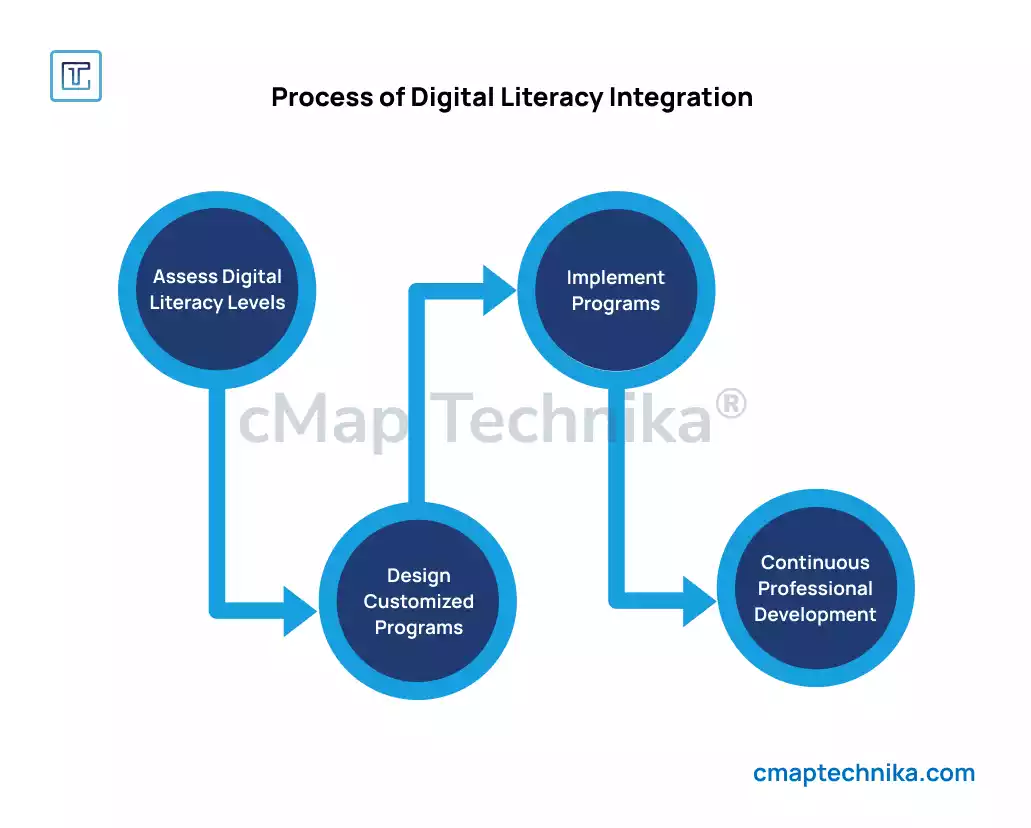
Rather than treating digital literacy as an isolated subject, education consultants focus on embedding digital skills throughout the curriculum. This integrated approach ensures that students are continually engaging with technology in the context of their academic work, whether in science, mathematics, the arts, or humanities.
For instance, consultants may recommend that digital tools be used for collaborative group projects, where students can work together using cloud-based platforms, or suggest the inclusion of coding exercises within math and science lessons. By embedding these skills into various subjects, students are able to understand the practical applications of digital literacy in their field of study and future careers.
4. Promoting Digital Citizenship
In addition to technical skills, education consultants also focus on fostering responsible and ethical use of technology. This aspect of digital literacy is known as digital citizenship, which includes understanding the ethical implications of online behavior, respecting others’ privacy, and using technology in ways that promote social good.
Consultants help schools and universities develop programs that teach students how to interact responsibly in digital environments, whether they are using social media, collaborating on digital platforms, or conducting online research. This is an essential aspect of digital literacy, as students must not only be adept at using technology but also understand how to navigate the challenges and risks that come with it.
5. Continuous Professional Development for Educators
For digital literacy programs to be truly effective, educators must be equipped to teach and integrate these skills into their classrooms. Education consultants often provide ongoing professional development to teachers and administrators, helping them stay up-to-date with the latest digital tools and teaching methodologies.
Through workshops, webinars, and one-on-one coaching, consultants support educators in their journey to becoming digitally literate themselves, which in turn enables them to confidently teach digital skills to students. As technology evolves, so too must the knowledge and teaching strategies of educators. Consultants help schools establish a culture of continuous learning, ensuring that staff members are always prepared to teach the next generation of digital natives.
Preparing Students for the Future of Work
As the future of work becomes increasingly digital, the demand for workers with advanced technological skills is on the rise. From data analysts and software developers to digital marketers and remote project managers, many careers now require a deep understanding of digital tools and platforms. Education consultants help prepare students for these careers by ensuring they graduate with the skills and knowledge needed to excel in the digital workforce.
By integrating digital literacy into educational programs, consultants are helping students gain a competitive edge in the job market. Whether it’s through teaching students how to code, analyze data, or use digital collaboration tools, the ultimate goal is to prepare students for success in an ever-evolving digital world.
Conclusion
Education consultants play a crucial role in helping schools and universities bridge the digital divide by enhancing digital literacy among students and educators alike. By assessing current digital literacy levels, designing customized programs, and providing ongoing professional development, consultants ensure that institutions are equipped to meet the demands of a digital-first future. As students develop the skills needed to navigate and thrive in an increasingly tech-driven world, education consultants will continue to be at the forefront of driving digital transformation in education, empowering the next generation of leaders and innovators.





